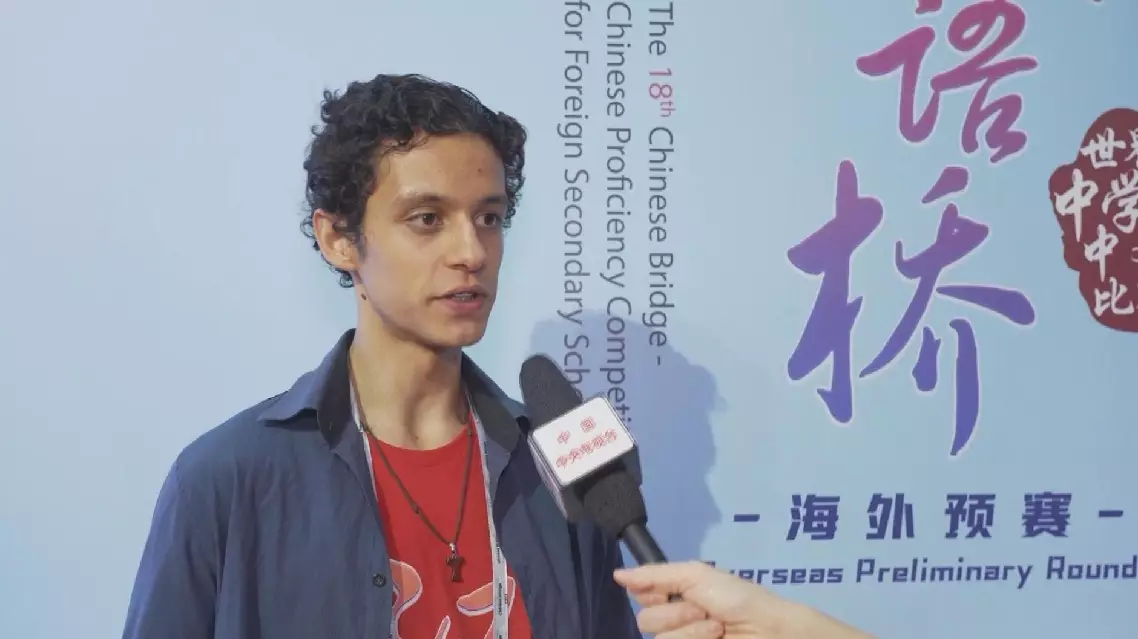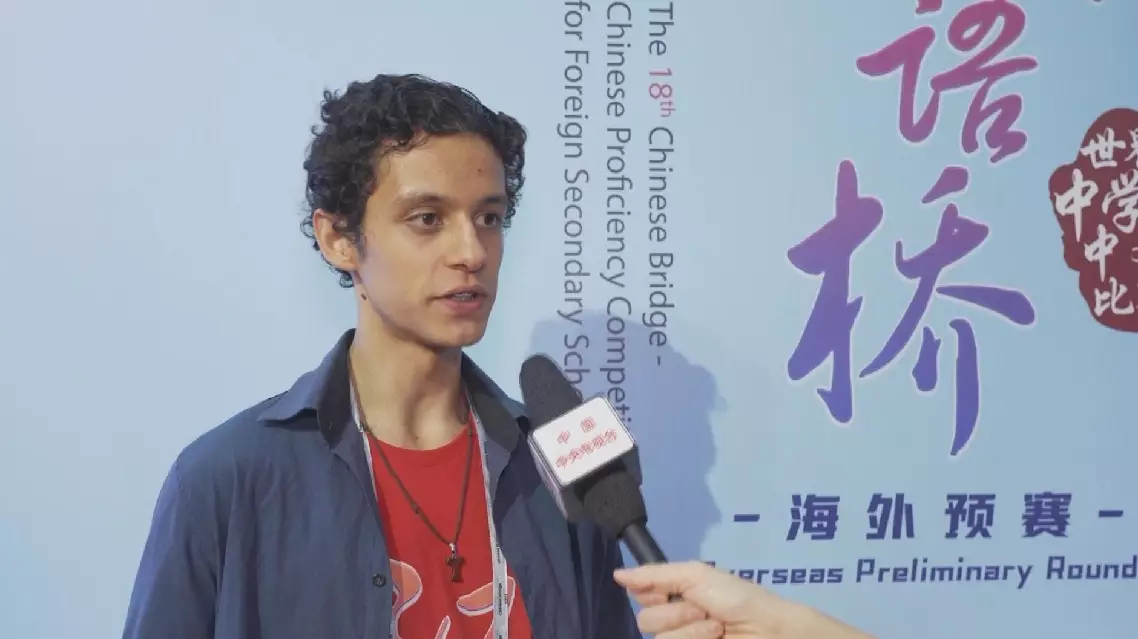The 24th Chinese Bridge Chinese Proficiency Competition for Foreign College Students in Brazil and the 18th edition for middle school students was held in Rio de Janeiro from Saturday to Sunday, selecting the country's champions to represent the country at the global finals to be held in Beijing later this year.
Co-hosted by the Chinese Embassy in Brazil and organized by the Confucius Institute at the Pontifical Catholic University of Rio de Janeiro, the event brought together students and teachers from Confucius Institutes and Chinese Bridge clubs nationwide.
Over two days at the Pontifical Catholic University campus, 25 college students and 11 high school student contestants showcased linguistic mastery through Chinese calligraphy and recitations of ancient Chinese poetry.
Chinese Consul General in Rio Tian Min addressed the competition's opening ceremony on Saturday, stressing that enthusiasm for Chinese learning has surged in Brazil in recent years, with education in the language developing systematically and diversely, she noted.
Henrique Santana, a high school student from COTUCA -- affiliated secondary school of the Confucius Institute at the State University of Campinas, and Rodrigo Lerner Gutterres, a college student from the Confucius Institute of the Federal University of Rio Grande do Sul, won first place in the high school group and college student group respectively following an intense competition.
Santana, who began learning Chinese in 2023 but is already a two-time contestant, expressed confidence in representing Brazil and determination to improve his language skills.
"I think if you study hard to learn Chinese, you can discover many things. China is a great, beautiful country. I want to go to China. I should be the one representing Brazil (in the Chinese Bridge finals). So I need to study Chinese hard," he said.
Gutterres, who speaks English, Spanish and Portuguese, said that he hopes to meet more friends who are as passionate about the Chinese language as he is.
"I'm very looking forward to meeting them, we can communicate with each other, share our stories and our own ways of learning the Chinese language," Gutterres said.
Brazil, home to 13 Confucius Institutes, has seen its registered Chinese learners exceed 10,000 for three consecutive years -- the highest in Latin America -- reflecting deepening cultural ties between the two nations.
The Chinese Bridge contest is an international student competition organized by Confucius Institutes around the world and tests participants' mastery of the Chinese language and culture.

24th "Chinese Bridge" language competition Brazilian finals conclude in Rio

24th "Chinese Bridge" language competition Brazilian finals conclude in Rio
Shenzhen in south China's Guangdong Province saw a soaring number of visitors from abroad on Thursday, the first day of 2026 and also the opening day of China's three-day New Year holiday, as festive celebrations unfolded across the city.
Major border checkpoints in the city recorded peak inbound passenger flows, with large numbers of travelers from Hong Kong, Macao and overseas entering the city to experience its vibrant holiday vibes.
"I'm so happy 'cause this is the first day of 2026, and I'm bringing my friends to visit Shenzhen," said a visitor from Hong Kong.
International tourists also shared their excitement.
"It's a very modern city and it's interesting to see such a New Year Eve in such a city," said an overseas visitor.
The inbound passenger flow at Luohu Port peaked from 8:00 to 20:00 on Thursday, said an officer there, adding the average daily passenger flow during the New Year break is expected to reach about 240,000.
At the West Kowloon Station port, eye-catching red decorations themed around the upcoming 2026 Spring Festival which will mark the beginning of the Year of the Horse added to the festive mood.
As a key transportation hub of the Guangzhou-Shenzhen-Hong Kong Express Rail Link, the port also saw heavy two-way passenger traffic. Daily cross-border passenger flow there is expected to average around 100,000 during the holiday.
An Australian tourist said he was looking forward to his trip to south China.
"I am from Melbourne, Australia and I'm coming to Guangzhou and Shenzhen in China. I'm excited to see all the tall buildings, especially all the ones that light up and experience a new culture in China." said a tourist.
Outside the ports, celebrations were in full swing as the city prepared for rising visitor numbers.
A large-scale parade featuring more than 30 themed formations kicked off in the morning along the 1.6-kilometer Festival Avenue in Shenzhen's Futian District.
The event drew huge crowds with inflatable cartoon characters, lively drum performances, and traditional Yingge Dance -- a form of folk dance popular in south China's Guangdong Province that merges opera, dance, and martial arts.
Nearby commercial zones also rolled out special consumption coupons, allowing visitors to enjoy a one-stop experience combining festive celebrations and shopping.
"The atmosphere is really nice. We feel very welcomed here. It's a very, very international vibe", said an international visitor.
China continues to grow in popularity as a destination for overseas travelers. Data from online tourism platforms show that inbound flight bookings to China rose 20 percent year on year on the first day of the holiday, with Shenzhen ranking fifth among the country's most popular inbound travel destinations.
"On the first day of holiday, international flight ticket purchases to Shenzhen has increased by 52.5 percent while the international flight bookings to the city has grown by 33 percent," said Shi Ke, a researcher from big data research institute of Qunar, an online travel service provider.

Shenzhen embraces influx of visitors on first day of 2026











